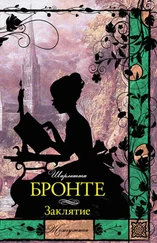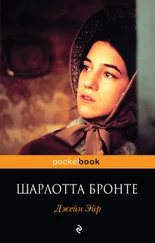I would not now have exchanged Lowood with all its privations for Gateshead and its daily luxuries.
But the privations, or rather the hardships, of Lowood lessened. Spring drew on – she was indeed already come; the frosts of winter had ceased; its snows were melted, its cutting winds ameliorated. My wretched feet, flayed and swollen to lameness by the sharp air of January, began to heal and subside under the gentler breathings of April; the nights and mornings no longer by their Canadian temperature froze the very blood in our veins; we could now endure the play-hour passed in the garden. Sometimes, on a sunny day it began even to be pleasant and genial, and a greenness grew over those brown beds, which, freshening daily, suggested the thought that Hope traversed them at night, and left each morning brighter traces of her steps. Flowers peeped out amongst the leaves; snow-drops, crocuses, purple auriculas, and golden-eyed pansies. On Thursday afternoons (half-holidays) we now took walks, and found still sweeter flowers opening by the wayside, under the hedges.
I discovered, too, that a great pleasure – an enjoyment which the horizon only bounded – lay all outside the high and spike-guarded walls of our garden. This pleasure consisted in prospect of noble summits girdling a great hill-hollow, rich in verdure and shadow; in a bright beck, full of dark stones and sparkling eddies. How different had this scene looked when I viewed it laid out beneath the iron sky of winter, stiffened in frost, shrouded with snow! – when mists as chill as death wandered to the impulse of east winds along those purple peaks, and rolled down ‘ing’ and holm till they blended with the frozen fog of the beck! That beck itself was then a torrent, turbid and curbless; it tore asunder the wood, and sent a raving sound through the air, often thickened with wild rain or whirling sleet; and for the forest on its banks, that showed only ranks of skeletons.
April advanced to May. A bright serene May it was; days of blue sky, placid sunshine, and soft western or southern gales filled up its duration. And now vegetation matured with vigour; Lowood shook loose its tresses; it became all green, all flowery; its great elm, ash, and oak skeletons were restored to majestic life; woodland plants sprang up profusely in its recesses; unnumbered varieties of moss filled its hollows, and it made a strange ground-sunshine out of the wealth of its wild primrose plants; I have seen their pale gold gleam in overshadowed spots like scatterings of the sweetest lustre. All this I enjoyed often and fully, free, unwatched, and almost alone; for this unwonted liberty and pleasure there was a cause, to which it now becomes my task to advert.
Have I not described a pleasant site for a dwelling, when I speak of it as bosomed in hill and wood, and rising from the verge of a stream? Assuredly, pleasant enough; but whether healthy or not is another question.
That forest-dell, where Lowood lay, was the cradle of fog and fog-bred pestilence; which, quickening with the quickening spring, crept into the Orphan Asylum, breathed typhus through its crowded schoolroom and dormitory, and, ere May arrived, transformed the seminary into an hospital.
Semi-starvation and neglected colds had predisposed most of the pupils to receive infection. Forty-five out of the eighty girls lay ill at one time. Classes were broken up, rules relaxed. The few who continued well were allowed almost unlimited license; because the medical attendant insisted on the necessity of frequent exercise to keep them in health; and had it been otherwise, no one had leisure to watch or restrain them. Miss Temple’s whole attention was absorbed by the patients; she lived in the sick-room, never quitting it except to snatch a few hours’ rest at night. The teachers were fully occupied with packing up and making other necessary preparations for the departure of those girls who were fortunate enough to have friends and relations able and willing to remove them from the seat of contagion. Many, already smitten, went home only to die; some died at the school, and were buried quietly and quickly, the nature of the malady forbidding delay.
While disease had thus become an inhabitant of Lowood, and death its frequent visitor; while there was gloom and fear within its walls; while its rooms and passages steamed with hospital smells – the drug and the pastille striving vainly to overcome the effluvia of mortality, that bright May shone unclouded over the bold hills and beautiful woodland out of doors. Its garden, too, glowed with flowers; hollyhocks had sprung up tall as trees, lilies had opened, tulips and roses were in bloom; the borders of the little beds were gay with pink thrift and crimson double daisies; the sweetbriars gave out, morning and evening, their scent of spice and apples; and these fragrant treasures were all useless for most of the inmates of Lowood, except to furnish now and then a handful of herbs and blossoms to put in a coffin.
But I, and the rest who continued well, enjoyed fully the beauties of the scene and season; they let us ramble in the wood, like gipsies, from morning till night; we did what we liked – went where we liked; we lived better too. Mr. Brocklehurst and his family never came near Lowood now; household matters were not scrutinised into; the cross housekeeper was gone, driven away by the fear of infection; her successor, who had been matron at the Lowton Dispensary, unused to the ways of her new abode, provided with comparative liberality. Besides, there were fewer to feed; the sick could eat little; our breakfast-basins were better filled; when there was no time to prepare a regular dinner, which often happened, she would give us a large piece of cold pie, or a thick slice of bread and cheese, and this we carried away with us to the wood, where we each chose the spot we liked best, and dined sumptuously.
My favourite seat was a smooth and broad stone, rising white and dry from the very middle of the beck, and only to be got at by wading through the water; a feat I accomplished barefoot. The stone was just broad enough to accommodate, comfortably, another girl and me, at that time my chosen comrade – one Mary Ann Wilson; a shrewd, observant personage, whose society I took pleasure in, partly because she was witty and original, and partly because she had a manner which set me at my ease. Some years older than I, she knew more of the world, and could tell me many things I liked to hear. With her my curiosity found gratification. To my faults, also, she gave ample indulgence, never imposing curb or rein on anything I said. She had a turn for narrative – I for analysis; she liked to inform – I to question; so we got on swimmingly together, deriving much entertainment, if not much improvement, from our mutual intercourse.
And where, meantime, was Helen Burns? Why did I not spend these sweet days of liberty with her? Had I forgotten her? or was I so worthless as to have grown tired of her pure society? Surely the Mary Ann Wilson I have mentioned was inferior to my first acquaintance; she could only tell me amusing stories, and reciprocate any racy and pungent gossip I chose to indulge in; while, if I have spoken truth of Helen, she was qualified to give those who enjoyed the privilege of her converse, a taste of far higher things.
True, reader; and I knew and felt this: and though I am a defective being, with many faults and few redeeming points, yet I never tired of Helen Burns; nor ever ceased to cherish for her a sentiment of attachment, as strong, tender, and respectful as any that ever animated my heart. How could it be otherwise, when Helen, at all times and under all circumstances, evinced for me a quiet and faithful friendship, which ill-humour never soured, nor irritation never troubled? But Helen was ill at present; for some weeks she had been removed from my sight to I knew not what room upstairs. She was not, I was told, in the hospital portion of the house with the fever patients; for her complaint was consumption, not typhus; and by consumption I, in my ignorance, understood something mild, which time and care would be sure to alleviate.
Читать дальше
Конец ознакомительного отрывка
Купить книгу










